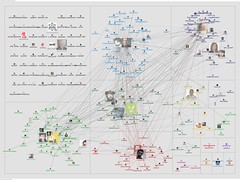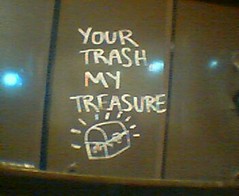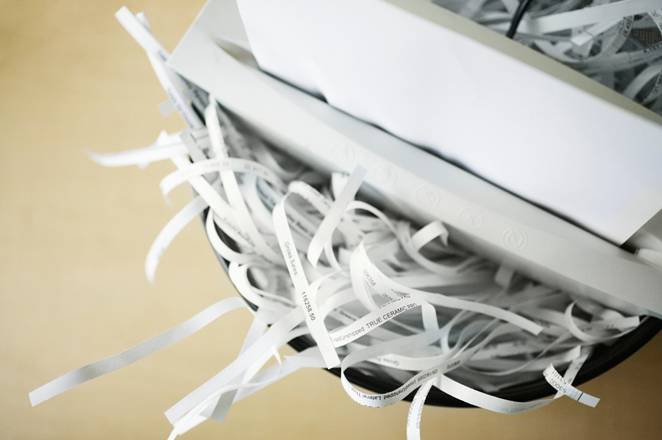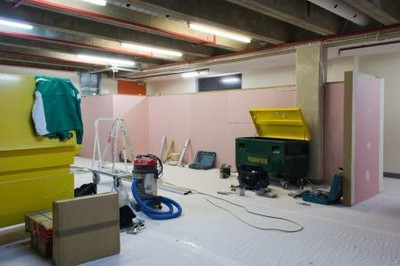Social media in government and recordkeeping #socialmediagov December 21, 2011 1 Comment

![]() photo credit: Marc_Smith
photo credit: Marc_Smith
Last week I spoke at the Social Media in Government Conference organised by Informa in Canberra.
I was there to talk about the role of recordkeeping in the Web 2.0, social media world but really enjoyed the range of other presentations that highlighted the active and innovative use of social media in the Government environment.
In this post I will give a quick overview of some of the key themes that, to me, emerged through the conference (note I was only there for part of day 1 of the conference) and a quick summary of the specific recordkeeping issues I discussed, particularly the risks and proactive decisions that have to be made in order to manage records of business performed in web 2.0/social media environments. Read the rest of this entry »
Draft NSW Information and Communications Technology (ICT) Strategic Framework – comments close tomorrow! No Comments
The draft NSW Government ICT Strategic Framework document is currently open for public consultation. But for 1 more day only!
The draft ICT Strategic Framework document provides a model of the improved outcomes that could be achieved through a redesign of how ICT is used and managed in NSW government. It suggests a new set of ICT enablers and the key service capabilities that will be needed to achieve these outcomes. A government-wide ICT Strategy document based on the Framework is due to be issued in early 2012.
Sorry for the late notice but there is one more day to officially comment on the Strategic Framework document. The Framework document can be downloaded from and comments can be made via the NSW Government consultation website.
If you have views about how information can be better shared, managed and used across Government or views on how technology could be better deployed, please take the time to provide some feedback. Along with staff, information is Government’s key asset and so ideas on how it can more effectively shared and used could greatly improve Government operations, now and into the future. The consultation website indicates that feedback is welcomed at any stage of the process, so don’t worry if you can’t meet tomorrow’s deadline, feel free to provide some feedback when you can.
Initial advice on implementing recordkeeping requirements in SharePoint 2010 December 16, 2011 No Comments

![]() photo credit: gemma maree
photo credit: gemma maree
We have been receiving a lot of enquiries about how to configure SharePoint so that it can serve business and recordkeeping purposes.
We hope to issue more comprehensive guidance about this in the new year, but in the interim, we want to provide some initial advice for all of those we know are grappling with SharePoint configuration.
Some quick summary points:
- SharePoint 2010 can be configured to have good recordkeeping capacities
- BUT it will take a significant investment of time, money and strategy to achieve this
- Therefore, while licence costs for SharePoint may be relatively inexpensive, do not overlook the costs of configuration and implementation which could be considerable
- That said, with the appropriate investment and configuration, SharePoint can be an effective recordkeeping tool that operates as an easy to use business system for the user and makes many records managment obligations and operations invisible
- Be aware though that the recordkeeping capacities in SharePoint 2007 are much more limited and the following advice all applies to SharePoint 2010.
This initial advice has been compiled using the various references cited below and through preliminary discussions with a range of Government bodies in NSW. We do however regard this advice as our initial, draft views on recordkeeping and SharePoint.
In the New Year we hope to sit down with a range of Government agencies who are implementing SharePoint and discuss the specific decisions and choices they’ve made and use this to further develop and refine our advice. But the steady stream of enquiries we are getting shows that NSW government bodies need an initial overview of the recordkeeping issues and considerations associated with a SharePoint 2010 implementation now.
Until we can develop more comprehensive guidance we would love to hear your full and frank responses to this draft advice. What have we got wrong? What have we left out? What are other considerations or lessons you have learned? Thanks for any and all responses! Read the rest of this entry »
The problems of identifying which digital records to keep and which to throw away: survey shows digital disposal is hard December 15, 2011 No Comments

![]() photo credit: justindoub
photo credit: justindoub
In October 2011, State Records distributed a survey on public sector attitudes and practices in relation to digital disposal to all NSW public offices. During the two week period it was available, 83 individual survey responses were received.
The key issues that emerge from this survey are:
- limited record destruction is taking place in the EDRMS environment and in the business system environment
- the disposal of records in business systems is regarded by many public offices as costly, time consuming and difficult
- many organisations are not aware of the retention requirements that apply to their records held in business systems
- there is a widespread belief that digital disposal can ‘wait till later’ and for many paper record disposal is seen as a much more pressing issue, and
- most records managers are not confident that their significant records can be maintained for more than 10 years.
Each of these issues is of concern to State Records as they pose risks to the useability, accessibility and maintenance of government business information. Read the rest of this entry »
Have a happy festive season December 13, 2011 No Comments
Can you believe that another year is almost over? Where has that gone? It has certainly been a busy one for Digital Recordkeeping at State Records.
Future Proof newsletter 2011 distributed to Chief Executives December 8, 2011 No Comments
 Each year, State Records sends a newsletter to all NSW public sector Chief Executives. The newsletter, called ‘Future Proof,’ concisely brings key issues and challenges relating to digital recordkeeping to the attention of Chief Executives.
Each year, State Records sends a newsletter to all NSW public sector Chief Executives. The newsletter, called ‘Future Proof,’ concisely brings key issues and challenges relating to digital recordkeeping to the attention of Chief Executives.
The 2011 Future Proof newsletter was distributed to Chief Executives in late November. Read the rest of this entry »
Wrapped in plastic.. a digital archives project update December 2, 2011 1 Comment
State Records’ digital archives project has been underway for 6 months now, so before we all collapse for the Christmas break, thought it might be a good time to let you know how we’re travelling.
1. We’re developing systems to support digital continuity partnerships
We see the protection, preservation and accessibility of digital records of the NSW government as a partnership with all of you; the agencies who create and keep records to support their business. Continuity of reliable digital information is as much about making sure you have business records for short and medium term purposes as it is about ensuring our collective digital memory is available via the State archives. Plus, records makers and users in the business simply know their information far better than we ever could. So we’re working on tools that we can both make use of to manage, migrate and preserve digital records whatever their status. Some of the key elements of this approach, which we introduced in our recent post: ‘What we reckon about keeping digital archives: ‘High level principles guiding State Records’ approach’, are:
- analysing recordkeeping system structures and interdependencies;
- mapping recordkeeping metadata;
- preservation planning tools and techniques; and
- capturing metadata to show what has been done with records throughout the process and demonstrate record integrity.
We hope to release more detail via explanatory information and a white paper early in 2012.
2. We’re buying stuff
Our Systems Administrator Damien Juhasz has been working incredibly hard on researching our requirements for ICT systems and hardware and we have several procurement processes underway right now. Our aim is to acquire solutions that are well supported, financially viable and scaleable. All our research has told us that when planning for digital storage, make an estimate and then multiply it tenfold. With the National Broadband Network and ever more data hungry applications coming at us, we are looking at storage, networking and back up technology that will scale with the minimum of hassle and cost.
3. We’re building stuff
Well, not us exactly, but what seems like an army of builders, electricians, engineers and other contractors who have been refurbishing parts of Stage 1 at the Western Sydney Records Centre to serve as the new digital archives office space and server room, as well as a new suite of digitisation rooms and a photo studio. Some pics showing the progress are in this post. We’ll post some more soon.
All the best for the holiday season from the Digital Archives team.
Disposal in a digital environment October 27, 2011 No Comments
One of the things recordkeeping professionals really struggle with in the digital environment is the management of disposal.
In the paper world we would be called in when that storage room got too full or when a move was underway to clean up the pile of records and sort out their disposal or transfer. In the digital world there are not often visual queues or these kind of imperatives for disposal. The attitude of senior staff is often “You can just add that extra server when space is short can’t you?” Disposal is never seen as a priority. Read the rest of this entry »
Read the rest of this entry »
Aligning the cloud to your business requirements October 14, 2011 No Comments
We have had recent meetings with some government agencies who are implementing a large cloud-based system. We had some good discussions and most of them focussed on developing options for aligning business requirements (and sound information management) with the cloud infrastructure. We all sorted out a few problems, identified some new ones and developed a list of issues to follow up on.
So it was really interesting to get back to the office and read Hamish Barwick’s recent article in CIO. Blake reported on the comments of Anne Weatherston, the CIO at the ANZ Bank, on how, from Weatherston’s perspective, the cloud is not yet mature enough to meet the needs of complex business environments. Read the rest of this entry »
First case study on digitisation now available October 13, 2011 No Comments
Are you undertaking a digitisation program or project? Would you like to see what others are doing in this area, how they have planned and managed their programs/projects, what they have achieved or the lessons they have learned along the way?
Over the coming months, State Records will be providing some case studies on our website focusing on digitisation activities undertaken by NSW public sector organisations. The case studies will include examples of both back capture projects (retrospective or project-based digitisation) and business process digitisation programs (ongoing, routine digitisation for business). When each case study is released it will be promoted through the Future Proof blog. The case studies will be linked to the digitisation guidelines when they are released in early 2012.
We are pleased to announce that the first of these case studies is now available. Read the rest of this entry »







